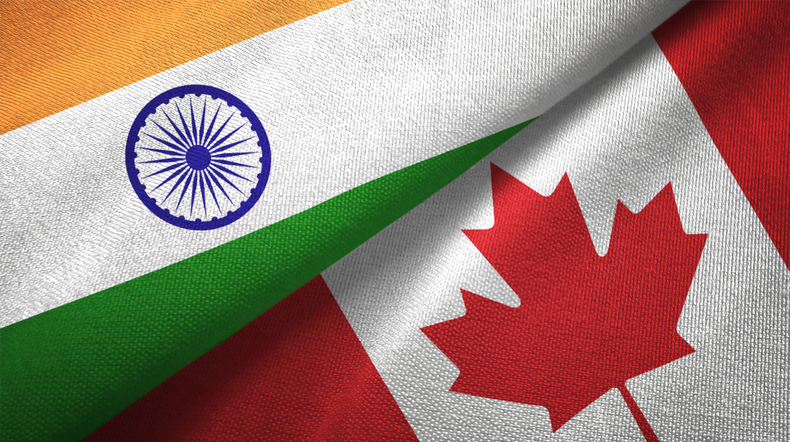Three Indians held in Canada over murder of Sikh activist Nijjar
May 7, 2024
The stars do not exactly seem to be aligning for Indian Prime Minister Narendra Modi as he bids for a third term in office with the Royal Canadian Mounted Police charging three Indians living in Edmonton with the assassination of Sikh activist Hardeep Singh Nijjar in June last year.
Canada’s Globe and Mail newspaper quoted RCMP assistant commissioner David Teboul as saying the investigation into the killing of Nijjar included a probe into connections to the government of India, adding that a number of cases were open and they were not limited to the three men who were taken into custody on Friday.
Last June, when Canadian Prime Minister Justin Trudeau accused India of involvement in the crime it led to a diplomatic row. Canada expelled one Indian diplomat, the head of India’s Research and Analysis Wing, a spy agency. India has reacted in kind and sent a Canadian diplomat packing.
It may be recalled that the US had also claimed in June that an Indian government official had directed a plot to try and kills Gurpatwant Singh Pannun, a Sikh separatist and dual citizen of the United States and Canada.
When Trudeau made his allegations in the House of Commons, he told the members that he had personally made his concerns known to Modi. Nijjar was killed in Surrey, British Columbia.
The Globe and Mail reported that the RCMP, when making the announcement about the arrests, had taken pains to thank members of the Sikh community in Surrey, including the leaders of the Guru Nanak temple.
Assistant commissioner Brian Edwards said: “The murder of Mr Nijjar at the Scott Road gurdwara was outrageous and it was reprehensible.
“It had a profound impact on the residents of Surrey and notwithstanding today (Friday) the announcing of charges, those scars will remain in our community for some time.”
The report quoted Moninder Singh, a spokesman for the British Columbia Gurdwara Council and a close friend of the late Nijjar, as saying the arrests would bring some relief, but underlining that the case was still open, adding that eye-witnesses had seen at least five men in the getaway car on the day of the murder.
Moninder was among five people warned by the RCMP’s national division in August 2022 that their lives were in danger.
He claimed India still posed a credible threat to Sikh diaspora activists, adding that the community was eager to know of any potential links Friday’s charges may have to the Modi government.
Moninder told the media: “It has to do with India’s involvement in this, how these individuals utilised their potential criminal ties back in India, how they got into the country – all of those are questions that are outstanding for all of us right now.”
The newspaper said the three men who were taken into custody were not residents of Canada. It cited court documents as saying Karanpreet Singh, 28, Kamalpreet Singh, 22, and Karan Brar, 22, had been charged with first-degree murder for the killing they are alleged to have started plotting in Edmonton and Surrey in May 2023. The trio is also charged with conspiracy to commit murder.
The RCMP said the three men had been living in Canada for three to five years and police from Alberta, British Columbia and one other unnamed province had taken part in the investigation.
The Globe quoted Indian High Commissioner Sanjay Kumar Verma as saying he would not comment on “arrests made for crimes committed in Canada”, calling “this an internal matter for Canada”.
Teboul, when asked how the RCMP would characterise the investigators’ interaction with Indian officials in Canada, described it as “challenging and difficult”.
The arrests were announced on the same day that a commission of inquiry into foreign interference in Canada released its report. Justice Marie-Josée Hogue, who conducted the inquiry, said Indian officials, including Canada-based proxies, had sought to influence Canadian communities and politicians.
She said such activities included efforts to align Canada’s position with India’s interest in key areas, particularly on the issue of an independent Sikh homeland in the Indian state of Punjab.
Though Justice Hogue made no mention of Nijjar’s murder, she said Indian officials relied on networks of proxies to “liaise and work with Indian intelligence officials in India and Canada, talking both explicit and implicit directions from them”.
The Khalistan movement goes back to the 1930s and had, as its aim, the creation of an ethno-religious state for Sikhs in Punjab. The movement has been largely quiescent after the Indian army entered the Golden Temple in Amritsar, the holiest Sikh shrine, in June 1984 and flushed out activists of the movement who had taken refuge there. The leader of the movement at the time, Jarnail Singh Bhindranwale, was among the dead.
The blowback came on October 31 the same year, when two Sikh guards of the late Indian prime minister Indira Gandhi shot her dead in cold blood. The act led to a great deal of bloodletting and India’s capital was shut down for days, with trains full of dead bodies periodically arriving there.

